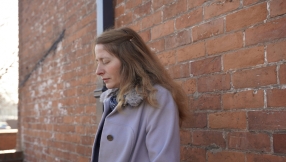Divorce rates in Britain are at their lowest in 40 years, reversing a trend of increased marital breakdown since 1933, but family breakdown is still rising.

Figures released today from the Office of National Statistics (ONS) reveal there were 114,720 divorces in England and Wales in 2013, a decline of almost 3 per cent on the previous year. This coincides with a recent spike in the number of couples getting married, ending a decades long trend of rising divorce and declining marriage.
The overall divorce rate fell to 9.8 men or women per 1,000. This represents the lowest rate since 1975 and is a fall of 27 per cent for men and 26 per cent for women compared with 2003.
Of particular interest is that young couples who marry are less likely to divorce than their parents' generation with figures showing that couples are increasingly likely to outlast what is known as the "seven year itch."
However the figures reveal an increasing trend of couples living together and having children before marrying. The number of unmarried couples with children has risen by 30 per cent in a decade and has more than doubled since the mid-1990s.
This trend means that despite falling divorce rates, family breakdown continues to rise according to Harry Benson, the research director of the Marriage Foundation. He told Christian Today today's figures were "a mixed blessing."
"Today's divorce statistics are on the one hand very good news because newlyweds today are as stable as they were in the early 1970s," he said. "However the bad news is that family breakdown is still rising."
This, he said, was because of the rise in couples who chose not to marry before they have children. They are much more likely to split than those that do, said Benson.
"Despite co-habiting couples only accounting for one fifth of families with children, they make up half of family breakdowns," he said. "Among GCSE age children, 45 per cent are not living with both natural parents."
Benson said that less expectation to marry contributed to the relative stability of young married couples.
"There is now less social pressure to marry," he said. "So those who do marry tend to be much more committed."














